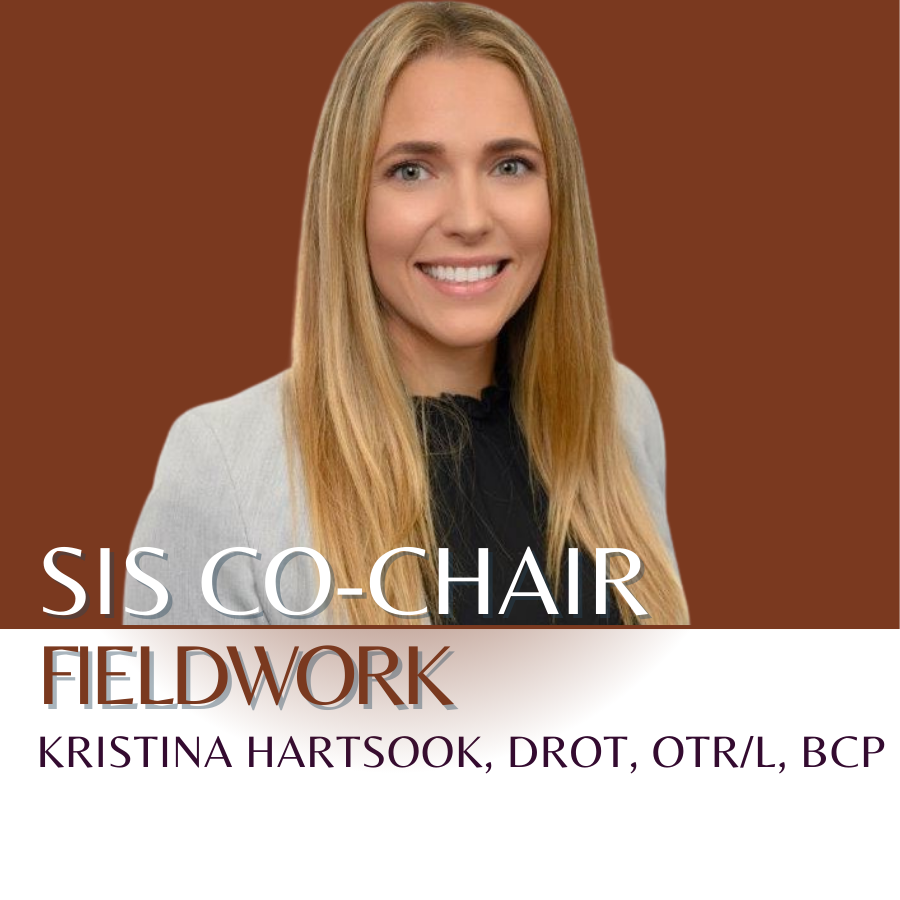Elevating Fieldwork Experiences: The Role of Evidence-Based Practice in Occupational Therapy
 Elevating Fieldwork Experiences: The Role of Evidence-Based Practice in Occupational Therapy
Elevating Fieldwork Experiences: The Role of Evidence-Based Practice in Occupational Therapy
Kristina Hartsook, DrOT, OTR/L, BCP
Fieldwork experiences in occupational therapy (OT) are crucial for developing the skills and expertise necessary for effective clinical practice. One key aspect that significantly enhances the fieldwork journey is the incorporation of evidence-based practice (EBP). This article explores how integrating EBP into fieldwork not only enriches the learning experience for students but also contributes to the delivery of high-quality OT services.
Fieldwork placements serve as a bridge between academic knowledge and hands-on clinical application. Integrating EBP into fieldwork means exposing students to interventions grounded in the best available research evidence, ensuring that their practice aligns with current standards and the evolving landscape of OT.
Benefits of Integrating Evidence-Based Practice into Fieldwork
- Skill Development: Students engaged in evidence-based fieldwork gain valuable skills in critically appraising research, translating evidence into practice, and adapting interventions based on the unique needs of each client (Karp et al., 2022).
- Confidence Building: Exposure to evidence-based interventions during fieldwork enhances students' confidence in their clinical decision-making (Benfield & Jeffery, 2022). This confidence stems from knowing that their interventions are not only informed by academic knowledge but are backed by scientific evidence.
- Professional Preparedness: Graduating students who have experienced evidence-based fieldwork are better equipped to navigate the complexities of the modern healthcare environment (Jackson, 2018). This preparedness contributes to their seamless integration into professional practice upon graduation.
Challenges and Considerations in Evidence-Based Fieldwork:
While the benefits are substantial, it's essential to acknowledge the challenges associated with implementing EBP in fieldwork settings. These challenges may include access to relevant research resources, adapting evidence-based interventions to diverse client populations, and addressing the unique aspects of individual clients within the constraints of a fieldwork placement.
-
Access to and Understanding of Research:
- Challenge: Practitioners may face difficulties accessing relevant research due to paywalls, limited resources, or complexity of scientific language. OT may have fewer well-established, evidence-based interventions compared to some other healthcare fields.
- Consideration: Efforts should be made to enhance practitioners’ access to research through open access initiatives, plain-language summaries, and training programs that build research literacy. Occupational therapists need to carefully evaluate the existing evidence, using critical appraisal skills, and consider a combination of research evidence when making decisions.
-
Client Diversity and Client-Centered Care
-
Challenges: Clients in OT have diverse needs, and interventions that work for one individual may not be effective for another. EBP may provide generalized guidelines, but clients vary in terms of preferences, cultural backgrounds, and unique circumstances. Adapting evidence to accommodate these diversities without compromising effectiveness can be challenging.
-
Consideration: Occupational therapists should carefully consider the individual characteristics, preferences, and contexts of their clients. Engaging in thorough assessments and collaborating with clients to set meaningful goals are crucial for personalized interventions. This may involve discussing the evidence with clients in a way that is easily understandable and collaboratively setting priorities.
-
Interdisciplinary Communication
-
Challenges: EBP across disciplines use differing terminologies, varied perspectives on evidence, potential resistance to change, time constraints, and the need to bridge educational differences.
-
Consideration: Addressing these challenges involves cultivating a collaborative culture, promoting interdisciplinary education, and developing effective communication strategies. Successful interdisciplinary collaboration ultimately enhances patient outcomes by leveraging the unique strengths of each discipline to provide holistic and patient-centered care.
The Future of Evidence-Based Fieldwork:
In preparing for the future of evidence-based OT fieldwork, students should focus on developing strong research literacy skills, proficiency in technology, and the ability to collaborate with professionals from diverse disciplines. Emphasizing patient-centered practices, community engagement, adaptability, and a global perspective will be essential. Educational programs can create opportunities for students to actively involve clients, engage in interdisciplinary projects, and advocate for evidence-based practices. Overall, a holistic approach that combines clinical expertise with a commitment to continuous learning and a global perspective will equip students to thrive in the evolving landscape of OT.
In conclusion, evidence-based practice is not just a theoretical concept; it is a vital component of fieldwork education in OT. By immersing students in evidence-based interventions during their fieldwork experiences, educators contribute to the development of competent and confident OT practitioners. This approach not only elevates the quality of fieldwork education but also sets the stage for a profession that is responsive to the evolving needs of clients and the broader healthcare landscape.
References
Benfield, A., & Jeffery, H. (2022). Exploring evidence based practice implementation by occupational therapists: Implications for fieldwork. Journal of Occupational Therapy Education, 6(4), 1-19. https://doi.org/10.26681/jote.2022.060410
Jackson, L. (2018). Fieldwork students’ role in evidence-based practice. American Journal Occupational Therapy, 72(4_Supplement_1), 7211520335p1. https://doi.org/10.5014/ajot.2018.72S1-PO8029
Karp, P., Lavin, K. A., & Collins, T. (2022). Exploring fieldwork educator development: Preparation methods and support tools. Journal of Occupational Therapy Education, 6(1), 1-16. https://doi.org/10.26681/jote.2022.060113
